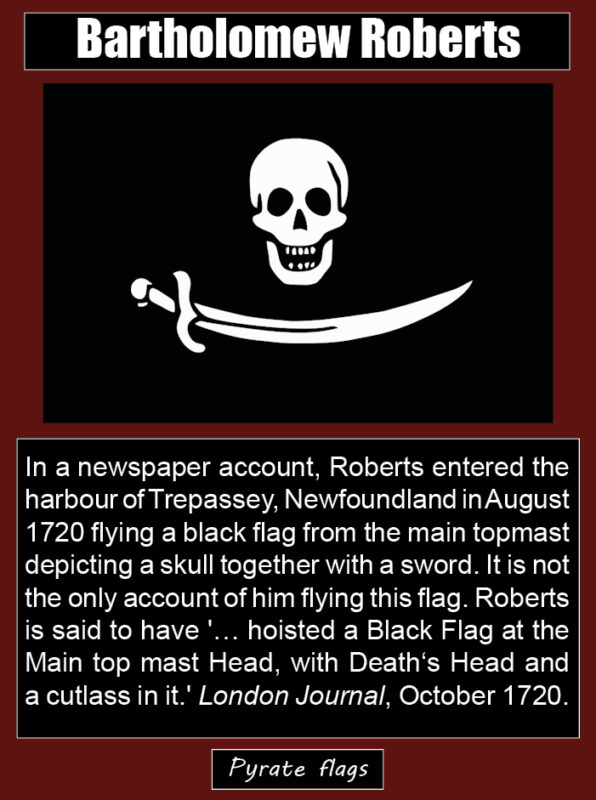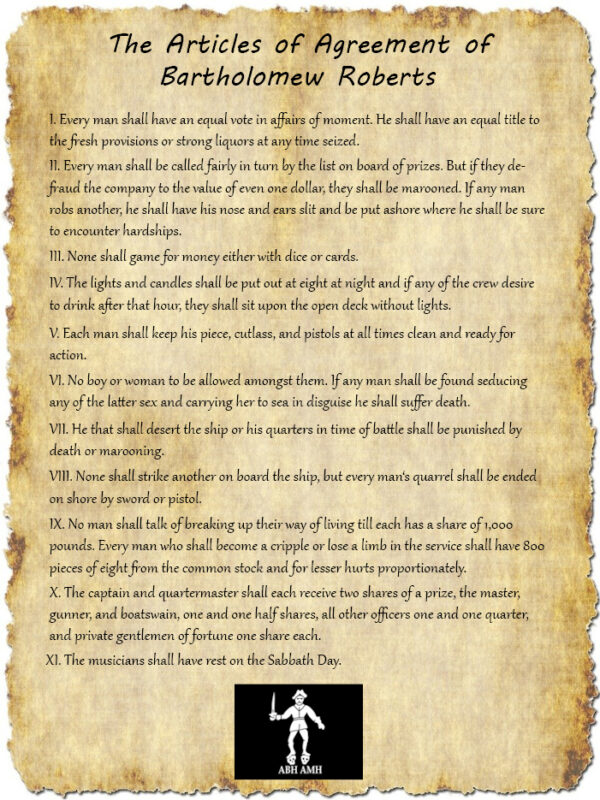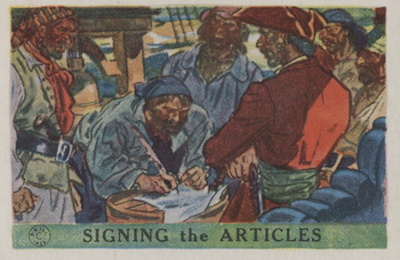
The Pirate Code of Captain Bartholomew Roberts is one of the best surviving examples of the Articles of Agreement put together by pirates. Roberts success in capturing over 400 ships in a three year time period might be as a result of the discipline instilled into the men by this strict code, which helped to keep the running of the ship smooth and fair, to avoid mutiny, and prevent other problems on board the ship. He probably based the articles on those of his predecessor Howell Davis.

 Pirates are often viewed a being lawless bunch in need of a strong, authoritative captain figure to keep them in line, but, in fact, they operated under their own strict set of rules, which were often deemed sacred to them. This set rules, commonly known as the Articles of Agreement or the Pirate Code determined everything on board a pirate vessel from the distribution of booty to the allotting of punishments. Overall, pirates were fairly democratic, but the punishments for breaking the agreed upon articles could often be severe. Articles that applied to all were a necessary measure to maintain the cohesion of the crew, many of whom had previously been subjected to the dictatorial methods of merchant and naval captains, so it was important that the crew agreed on what the Articles should cover together with the captain. In contrast, privateer vessels usually had their own charters, assigning larger shares to the officers and owners of the ship and what was left to the rest of the crew, although they sometimes contained points similar to those in the Pirate Code.…
Pirates are often viewed a being lawless bunch in need of a strong, authoritative captain figure to keep them in line, but, in fact, they operated under their own strict set of rules, which were often deemed sacred to them. This set rules, commonly known as the Articles of Agreement or the Pirate Code determined everything on board a pirate vessel from the distribution of booty to the allotting of punishments. Overall, pirates were fairly democratic, but the punishments for breaking the agreed upon articles could often be severe. Articles that applied to all were a necessary measure to maintain the cohesion of the crew, many of whom had previously been subjected to the dictatorial methods of merchant and naval captains, so it was important that the crew agreed on what the Articles should cover together with the captain. In contrast, privateer vessels usually had their own charters, assigning larger shares to the officers and owners of the ship and what was left to the rest of the crew, although they sometimes contained points similar to those in the Pirate Code.…